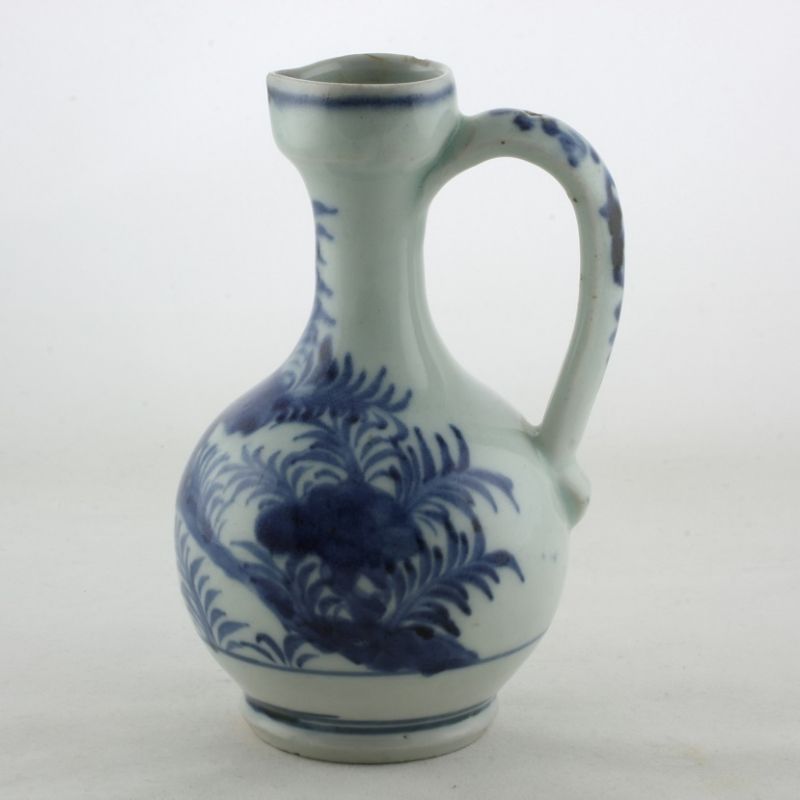
Japanese wares with Western Shapes or Designs 1653-1800 - Page 1
Object 2011428A
Ewer / jug
Japan
1670-1690
Height 134 mm (5.28 inch), diameter 80 mm (3.15 inch). diameter of mouthrim 29 mm (1.14 inch), diameter of footring 47 mm (1.85 inch), weight 241 grams (8.50 ounce (oz.))
Small oviform ewer / jug on spreading takefushi or 'bamboo-noded' foot, cylindrical neck, cup-shaped mouth with pinched spout. Curved handle, pierced at the top for a mount. Decorated in underglaze blue with plants and rocks, underlined by a single line. A single line around the mouthrim, a double line around the foot, scrolling on the handle.
The shape derived from a European stoneware model and the piercing on the handles of this and similar shapes is original, and was intended for the silver or other metal mount that would customarily have been added in Europe. (Impey 2002, p.106)
The shape of the bulging foot, which spreads and then turns sharply inward, is seen on many ewers of this period as well as on later jars, vases and other pieces. It is a distinctively Japanese feature, called takefushi, 'bamboo-noded' foot. (Jörg 2003/1, p.74)
For an identically small shaped and decorated ewer / jug, please see:
- Chinesisches und japanisches Porzellan in europäischen Fassungen, (D.F. Lunsingh Scheurleer, Verlag Klinkhardt & Biermann, Braunschweig,1980), p.379, cat. 394.
- Japanese Export Porcelain. Catalogue of the Collection of the Ashmolean Museum, Oxford, (O. Impey, Hotei Publishing, Amsterdam, 2002), p.106, cat. 122.
Condition: A Y-shaped firing glaze hairline to the inner mouth rim, a frit with two short connected hairlines and a chip to the rim.
References:
Lunsingh Scheurleer 1980, cat. 407
Price: € 399 Currency Converter


 create websites
create websites